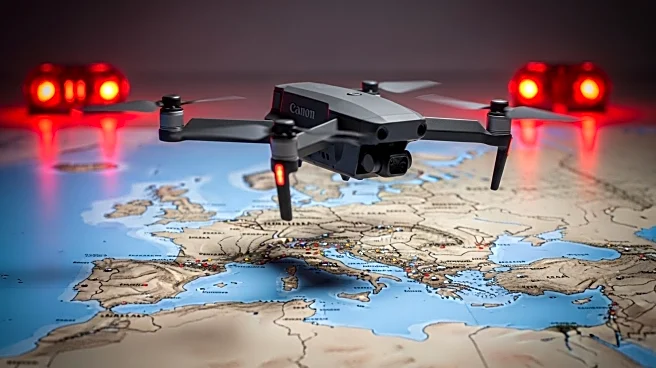What's Happening?
Russia's alleged 'hybrid war' tactics, involving drone incursions, have heightened security concerns across Europe. Recent incidents include drone sightings over airports and military bases in Germany, Denmark, and Poland, causing disruptions and public anxiety. These actions are perceived as part of a broader strategy by Russia to destabilize Europe through fear and uncertainty. The European response has been cautious, balancing the need to address security threats without escalating tensions with Russia.
Why It's Important?
The use of drones in Russia's 'hybrid war' represents a significant challenge to European security, highlighting vulnerabilities in airspace and critical infrastructure. This situation underscores the need for enhanced defense measures and international cooperation to address unconventional threats. The incidents have prompted discussions about the adequacy of current defense systems and the potential need for new technologies to counter drone threats. The broader geopolitical implications include strained relations between Russia and NATO countries, with potential impacts on regional stability.
What's Next?
European leaders are likely to consider new defense strategies, including the development of a 'drone wall' to protect critical infrastructure. The EU's response will involve balancing military readiness with diplomatic efforts to prevent further escalation. The situation may lead to increased defense spending and collaboration among NATO members to enhance security measures. Public communication strategies will also be crucial in managing public anxiety and maintaining confidence in government responses to security threats.









